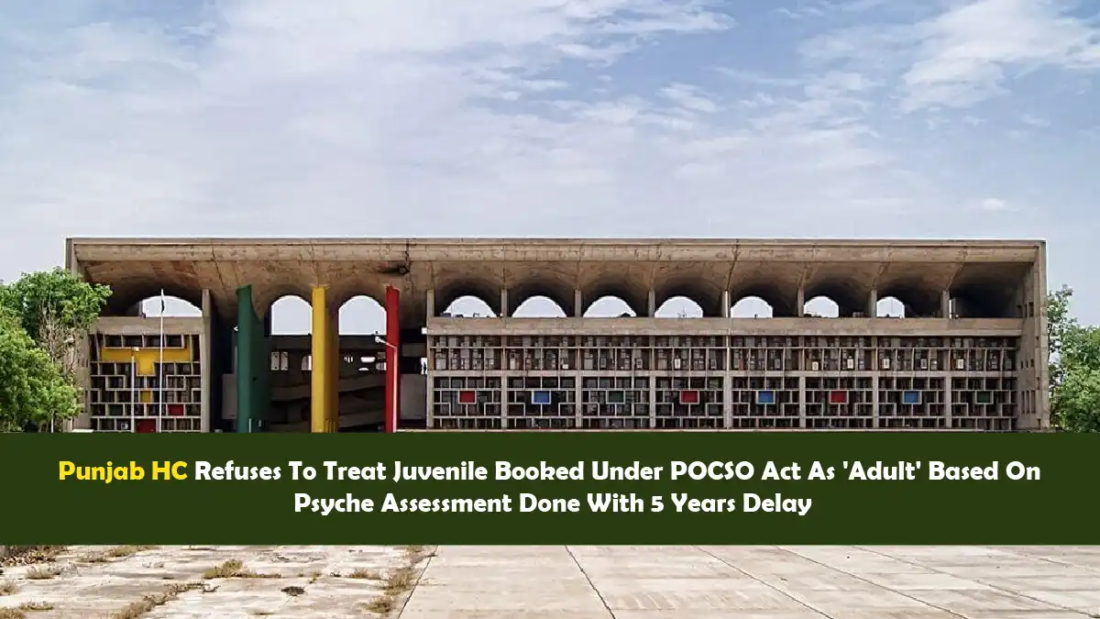Facts of the Case
The appellant, a juvenile, was involved in a case where he was charged with committing sexual assault against a 4-year-old girl under the Protection of Children from Sexual Offences (POCSO) Act and the Indian Penal Code (IPC). The alleged offense occurred on May 30, 2018, and the juvenile was arrested on the same day. Despite the provisions under the Juvenile Justice (JJ) Act, the preliminary assessment of the juvenile’s mental and physical capacity was not conducted until September 28, 2021, more than three years after the incident and the juvenile’s arrest. By that time, the juvenile had already turned 20 years and 6 months old.
Subsequently, a Children’s Court ordered that the juvenile be tried as an adult. However, the Punjab and Haryana High Court intervened, setting aside the Children’s Court’s order on the grounds that the preliminary assessment mandated by the Juvenile Justice Act had not been conducted within the prescribed time frame of three months. The Court noted that by the time the assessment took place, it was nearly impossible to assess the juvenile’s psychological state at the time of the alleged incident, five years earlier.
Contentions of the Appellant
The appellant’s contention was that the procedural requirements set out in the Juvenile Justice Act were not followed, particularly the time limit for conducting a preliminary assessment. The juvenile’s defence emphasized that the assessment was done after a significant delay, making it impossible to accurately assess his mental and physical capacity at the time of the offense. Additionally, the appellant argued that the trial as an adult was premature and violated the child’s rights under the Juvenile Justice Act, which seeks to protect juveniles in conflict with the law.
Contentions of the Respondent
The State, in its defense, argued that the preliminary assessment was conducted as per the provisions of the Juvenile Justice Act, even if delayed. The State contended that the Children’s Court had followed the necessary procedures to assess the juvenile’s fitness to be tried as an adult, and therefore, the trial could proceed. The delay in conducting the preliminary assessment was justified as per the circumstances.
Court’s Observations
The Punjab and Haryana High Court found the delay in conducting the preliminary assessment to be a critical issue. The Court observed that the purpose of the statutory time frame of three months under Section 14(3) of the Juvenile Justice Act was to ensure timely protection of the rights of children in conflict with the law. By allowing a delay of over three years before conducting the assessment, the law’s purpose was frustrated, and the juvenile’s rights were severely impacted.
The Court also noted the grave procedural errors in the handling of the case, particularly that the Children’s Court did not follow the required steps under the Criminal Procedure Code (CrPC) before trying the juvenile as an adult. These included examining the police report, framing charges, and recording statements of prosecution witnesses. The Court emphasized that it was extraordinary and concerning that the juvenile was convicted and sentenced without following these mandatory procedures.
The Court further highlighted the importance of protecting the rights of juveniles and criticized the failure to adhere to the deadlines stipulated by the Juvenile Justice Act. The Court observed that the very legislative intent of protecting children was defeated in this case due to the delays and procedural lapses.
Court’s Order
The Punjab and Haryana High Court set aside the order of the Children’s Court to try the juvenile as an adult. The Court treated the appellant as a Child in Conflict with the Law (CCL) and found him guilty of the offense of penetrative sexual assault under the POCSO Act, along with offenses under Sections 341, 342, and 506 of the IPC.
The Court sentenced the appellant to the maximum punishment provided for a juvenile, which was three years of imprisonment. Since the juvenile had already spent 3 years and 9 months in detention, the Court held that he had already served his sentence. Additionally, the Court recommended a compensation of Rs. 5 lakhs to the victim.
 Cart is empty
Cart is empty 

